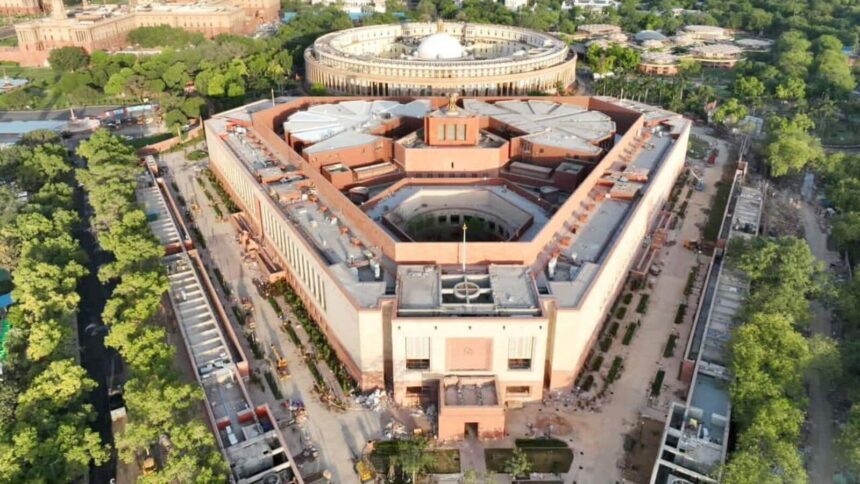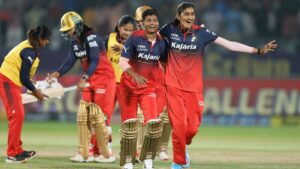On this occasion, Mint analyzes the performance of India’s parliamentarians by examining key metrics such as parliamentary productivity, questions raised, and participation in debates, among others.
Parliament Unproductive?
Frequent disruptions and adjournments during parliamentary sessions significantly reduce the time available for actual debate and legislative work. India has a longstanding history of such disruptions, often viewed as a hallmark of a vibrant democracy. However, these interruptions frequently lead to unproductive sessions. For instance, during the recent Monsoon session that concluded on August 21, disruptions accounted for nearly two-thirds of the scheduled time, according to data from PRS Legislative.
This situation resulted in the Lok Sabha functioning for only 29% of its scheduled hours, while the Rajya Sabha operated at 34%. These percentages represent the lowest productivity levels since the formation of the current government. Furthermore, PRS data indicates that discussions on urgent public matters, including short-duration discussions and attention motions, have decreased compared to the early 2000s, raising concerns about lawmakers’ efficiency in addressing critical issues.
Regional Parties Shine
Recent findings from the Lok Sabha Annual Report 2024-25 by Politics for Impact reveal that parliamentarians from regional parties have outperformed their national counterparts in legislative engagement over the past year. The report evaluated the performance of 482 non-ministerial members of parliament (MPs) based on participation in debates, questions raised, and attendance from June 2024 to June 2025.
Shiv Sena MPs excelled in debates, participating in an average of 22.2 debates and raising 107.7 questions, leading in both categories. The Nationalist Congress Party followed in second place. In contrast, MPs from the two primary national parties, the Bharatiya Janata Party (BJP) and the Indian National Congress (INC), exhibited poorer performance, averaging 51 questions raised by BJP MPs and 44 by INC MPs. Notably, however, BJP MPs boasted the highest average attendance rate at 91%.
Advantage Education?
A closer examination of educational qualifications suggests a correlation between education and parliamentary performance. Although India’s democratic framework permits individuals to become parliamentarians regardless of formal education, data from 482 MPs by Politics for Impact indicates that those with graduate degrees are the most engaged in parliamentary processes.
On average, graduate MPs raised 48.6 questions and participated in 12.7 debates, while those with postgraduate degrees raised 47.4 questions and engaged in 12.1 debates. In contrast, MPs with higher secondary education or lower had lower averages of 42.4 questions and 9.5 debates.
Matters of Representation
The performance of women parliamentarians in India prompts a critical examination. Despite female representation in Indian politics increasing to around 10%, still below the 33% target set by the Women’s Reservation Act, women MPs demonstrate comparable performance to their male counterparts.
According to the Politics for Impact report, women, although only representing 14%, are active participants in debates, averaging 11.8 debates alongside men. However, men lead in question-asking, averaging 47.6 questions compared to women’s average of 42 questions. Interestingly, younger women MPs engage more proactively with questions than their male peers in the same age group.
Criminal Connect
A concerning aspect of India’s political landscape is the prevalence of individuals with serious criminal charges in political positions. A report from the Association of Democratic Reforms indicates that approximately 47% of ministers have declared criminal cases against them, with 26% facing serious charges.
The report analyzed affidavits from 643 out of 652 ministers across 30 state/union territories, and the Union Council of Ministers, covering elections from 2020 to 2025. Serious charges include murder, attempted murder, kidnapping, and crimes against women. The Telugu Desam Party reports the highest proportion of MPs with serious charges at 57%, followed by Dravida Munnetra Kazhagam at 45%.
Legislation has been proposed to disqualify position-holders, such as the prime minister and chief ministers, in cases of imprisonment or detention, although many experts express concern over the potential misuse of such laws.










